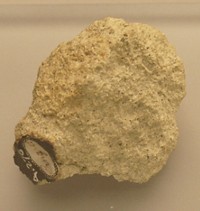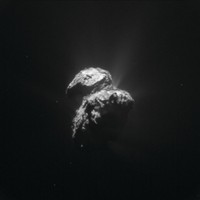Advertisement
Grab your lab coat. Let's get started
Welcome!
Welcome!
Create an account below to get 6 C&EN articles per month, receive newsletters and more - all free.
It seems this is your first time logging in online. Please enter the following information to continue.
As an ACS member you automatically get access to this site. All we need is few more details to create your reading experience.
Not you? Sign in with a different account.
Not you? Sign in with a different account.
ERROR 1
ERROR 1
ERROR 2
ERROR 2
ERROR 2
ERROR 2
ERROR 2
Password and Confirm password must match.
If you have an ACS member number, please enter it here so we can link this account to your membership. (optional)
ERROR 2
ACS values your privacy. By submitting your information, you are gaining access to C&EN and subscribing to our weekly newsletter. We use the information you provide to make your reading experience better, and we will never sell your data to third party members.
Materials
Mercury’s Surface Darkened By Carbon Coating
Micrometeorites may deposit carbon-rich material onto the small planet, study suggests
by Elizabeth K. Wilson
April 6, 2015
| A version of this story appeared in
Volume 93, Issue 14
The solar system’s innermost planet, Mercury, may get its dark color from a coating of carbon deposited by micrometeorites, a new study suggests (Nat. Geosci. 2015, DOI: 10.1038/ngeo2397). Mercury’s surface contains little iron, which typically darkens solar system bodies. So scientists have been unsure why Earth’s iron-rich moon is lighter. Megan Bruck Syal of Lawrence Livermore National Laboratory and colleagues note that inner planets are more likely to be struck by carbon-rich comets than are bodies farther from the sun. Such impacts would transform carbon into heat-stable forms such as graphite and nanodiamonds. The group calculated the amount of carbon that might be delivered at high speeds to Mercury, in the form of micrometeorites derived from disintegrated comets. They found that Mercury’s surface carbon should be 50 times as dense as the moon’s. The researchers also simulated the phenomenon in the lab, where they mixed rock samples with carbon-based compounds and bombarded the mixture with Pyrex pellets. The resulting melted material contained opaque carbon particles, which lowered the sample’s reflectance to a level comparable with Mercury’s surface.





Join the conversation
Contact the reporter
Submit a Letter to the Editor for publication
Engage with us on Twitter